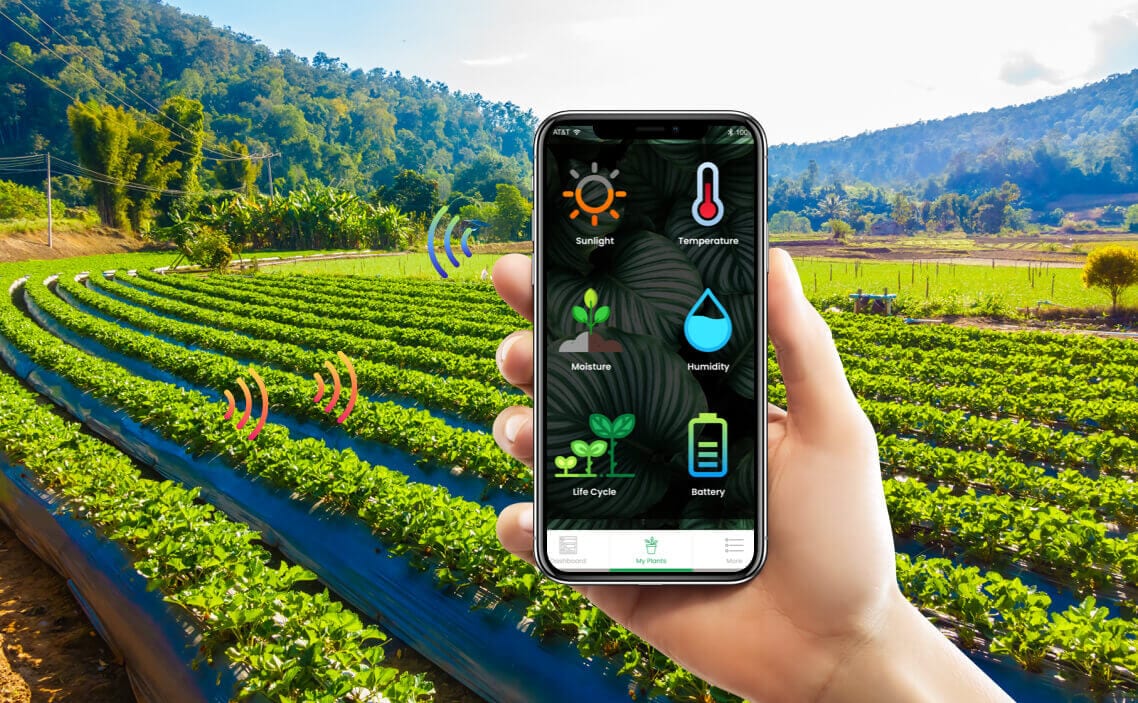In the rapidly evolving world of agriculture, smart agriculture systems have emerged as game-changers. Leveraging advanced technologies like the Internet of Things (IoT), artificial intelligence (AI), and big data, these systems are revolutionizing traditional farming methods. This article delves into the numerous benefits of adopting smart agriculture systems, highlighting how they can significantly enhance productivity, sustainability, and profitability for modern farmers.
Enhanced Crop Monitoring and Management
Real-Time Data Collection and Analysis
One of the most significant advantages of smart agriculture systems is the ability to collect and analyze real-time data. Using IoT farming technology sensors placed throughout the fields, farmers can monitor various parameters such as soil moisture, temperature, humidity, and crop health. Real-time data collection enables farmers to make informed decisions promptly, optimizing resource usage and improving crop yields.
Precision Farming Techniques
Smart agriculture systems facilitate precision farming techniques, which involve the precise application of water, fertilizers, and pesticides based on the specific needs of each plant. This targeted approach not only maximizes crop productivity but also minimizes waste and reduces the environmental impact of farming practices. By utilizing GPS and GIS technologies, farmers can create detailed maps of their fields, ensuring that every section receives the exact amount of inputs required for optimal growth.
Improved Resource Efficiency
Water Management
Water is a critical resource in agriculture, and its efficient use is essential for sustainable farming. Smart agriculture systems incorporate advanced irrigation technologies such as drip irrigation and automated sprinkler systems, which can be controlled remotely based on real-time soil moisture data. These systems ensure that crops receive the right amount of water at the right time, reducing water wastage and promoting better crop health.
Nutrient Management
Proper nutrient management is crucial for achieving high crop yields. Smart agriculture systems enable farmers to monitor soil nutrient levels and apply fertilizers precisely where needed. This not only enhances crop growth but also prevents over-fertilization, which can lead to nutrient runoff and environmental pollution. By optimizing nutrient use, farmers can achieve better yields while minimizing their impact on the environment.
Enhanced Crop Protection
Pest and Disease Monitoring
Pests and diseases pose significant threats to crop health and yield. Smart agriculture systems utilize advanced sensors and imaging technologies to detect early signs of pest infestations and disease outbreaks. By continuously monitoring crop conditions, farmers can take proactive measures to control pests and diseases before they cause significant damage. This approach reduces the reliance on chemical pesticides, promoting more sustainable and eco-friendly farming practices.
Predictive Analytics
Predictive analytics, powered by AI and machine learning algorithms, play a crucial role in smart agriculture. By analyzing historical data and current conditions, these systems can predict potential pest and disease outbreaks, enabling farmers to implement preventive measures in advance. Predictive analytics help farmers stay one step ahead, ensuring that their crops remain healthy and productive throughout the growing season.
Increased Operational Efficiency
Automation and Robotics
Automation and robotics are transforming the way farming operations are conducted. Smart agriculture systems incorporate autonomous tractors, drones, and robotic harvesters, which can perform various tasks with minimal human intervention. These technologies increase operational efficiency, reduce labor costs, and enhance the precision and accuracy of farming activities. Farmers can focus on strategic decision-making and management while the automated systems handle routine tasks.
Supply Chain Optimization
Smart agriculture systems extend beyond the farm gates, providing benefits throughout the entire supply chain. By integrating IoT and blockchain technologies, farmers can track the journey of their produce from the field to the consumer. This transparency enhances food safety, reduces food waste, and enables better coordination among different stakeholders in the supply chain. Farmers can optimize their production schedules and ensure that their products reach the market in the best possible condition.
Sustainability and Environmental Benefits
Reduced Environmental Impact
Sustainability is a key consideration in modern agriculture. Smart agriculture systems promote sustainable farming practices by minimizing the use of water, fertilizers, and pesticides. Precision farming techniques ensure that resources are used efficiently, reducing the environmental footprint of agricultural activities. By adopting these practices, farmers can contribute to the conservation of natural resources and the protection of ecosystems.
Climate Resilience
Climate change poses significant challenges to agriculture, with unpredictable weather patterns and extreme events becoming more frequent. Smart agriculture systems enhance the climate resilience of farms by providing real-time data and predictive analytics. Farmers can adapt their practices based on weather forecasts and environmental conditions, ensuring that their crops are protected from adverse weather events. This resilience is crucial for maintaining food security in the face of climate change.
Economic Benefits
Increased Productivity and Profitability
By optimizing resource use and improving crop management, smart agriculture systems significantly increase farm productivity. Higher crop yields translate into greater profitability for farmers. Additionally, the reduction in input costs, such as water, fertilizers, and pesticides, further enhances the economic benefits. Farmers can achieve better returns on investment and ensure the long-term viability of their operations.
Market Competitiveness
Smart agriculture systems enable farmers to produce high-quality crops that meet market demands. The ability to monitor and control every aspect of the farming process ensures that the produce is of consistent quality. This competitive edge allows farmers to access premium markets and command higher prices for their products. By staying ahead of industry trends and adopting innovative technologies, farmers can maintain their market competitiveness and secure their position in the global agricultural landscape.
Conclusion
The adoption of smart agriculture systems offers a multitude of benefits, ranging from enhanced crop monitoring and resource efficiency to improved sustainability and economic gains. By leveraging advanced technologies, farmers can transform their operations, ensuring higher productivity and profitability while minimizing their environmental impact. As the agricultural sector continues to evolve, the integration of smart agriculture systems will be crucial for meeting the growing demand for food and achieving sustainable development goals.
Also Read:
Efficient Post-Harvest Management: Tips for Better Crop Handling





Comments